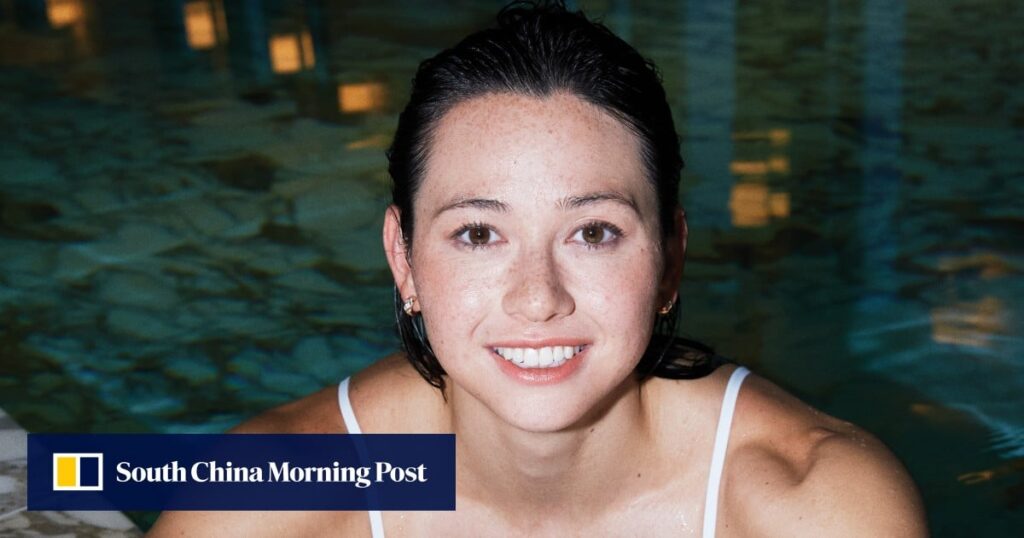“And that’s where it all started,” she recalls on an afternoon in late February, beaming with the signature smile that has captured the hearts of the Hong Kong public.
“I was like, ‘These seats are so terrible, but I’m so inspired by all the athletes here, I want to compete at the Olympics.’”
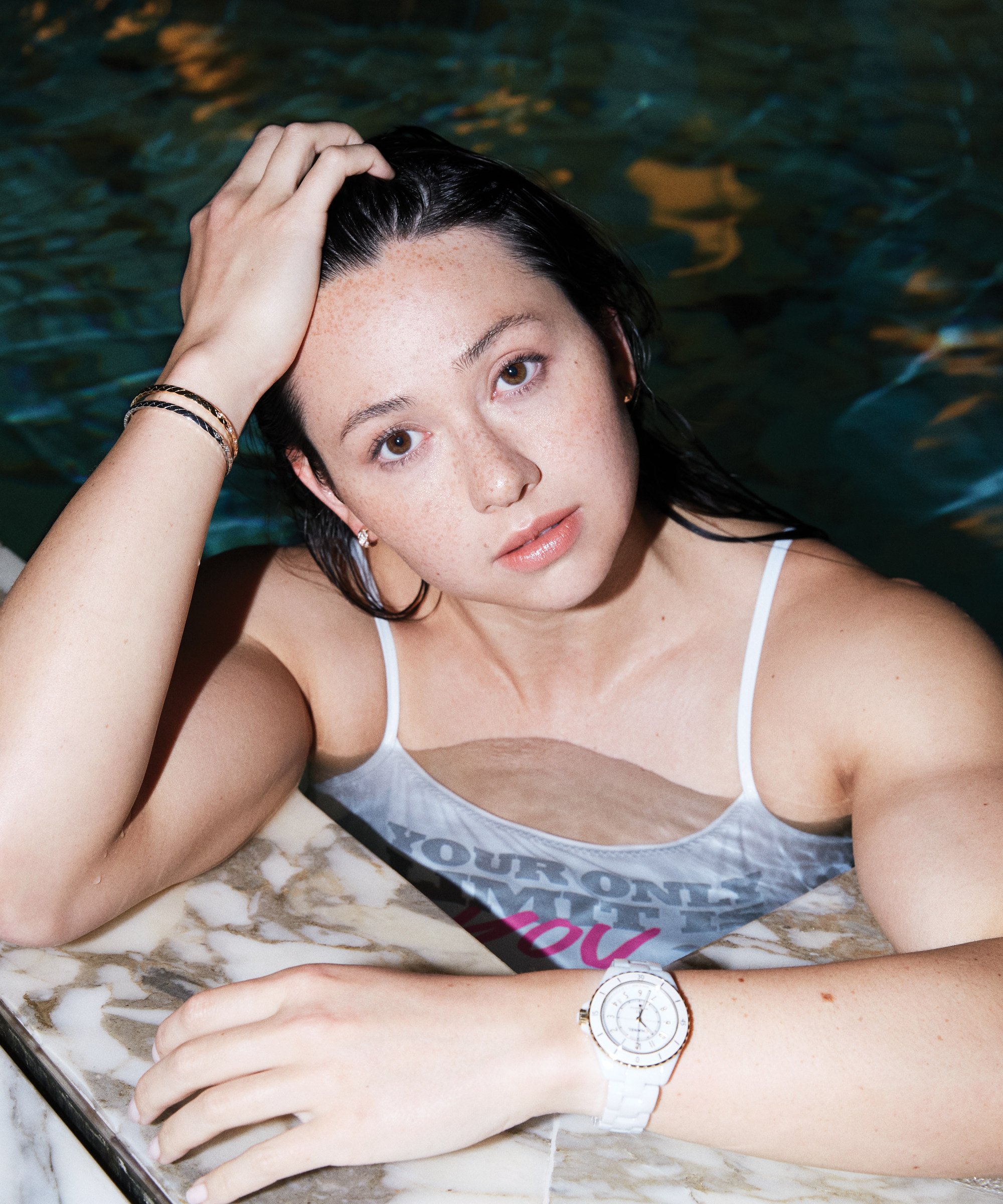
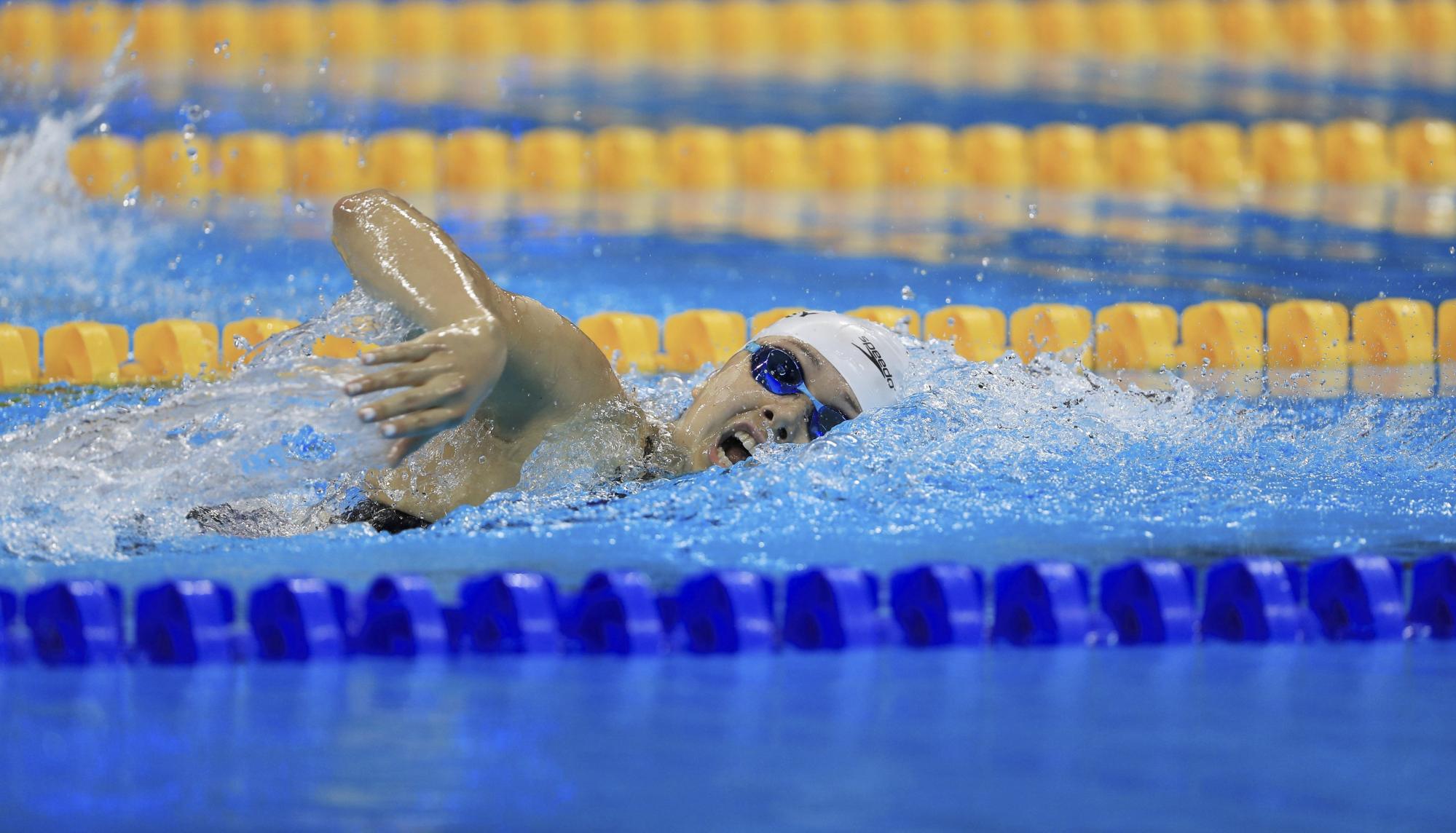
“It’s great that everyone has all these expectations, it’s very encouraging,” she says. “But some may not even know anything about swimming, and they think, ‘Oh, last time was silver, this time it’ll be a gold,’ but,” she says, stifling a laugh, “the reality is, it’s not that simple.”
But with Leung’s persistence the incessant crying subsided and Haughey accepted her fate – or rather, her parents’ desire for her to learn a survival skill, or at least a hobby.
Before long, the young Siobhán had honed a natural ability that led her to win several local competitions, and by the time she was seven years old, coaches had her swimming five times a week, and SCAA’s head coach was called in to analyse Haughey’s potential.
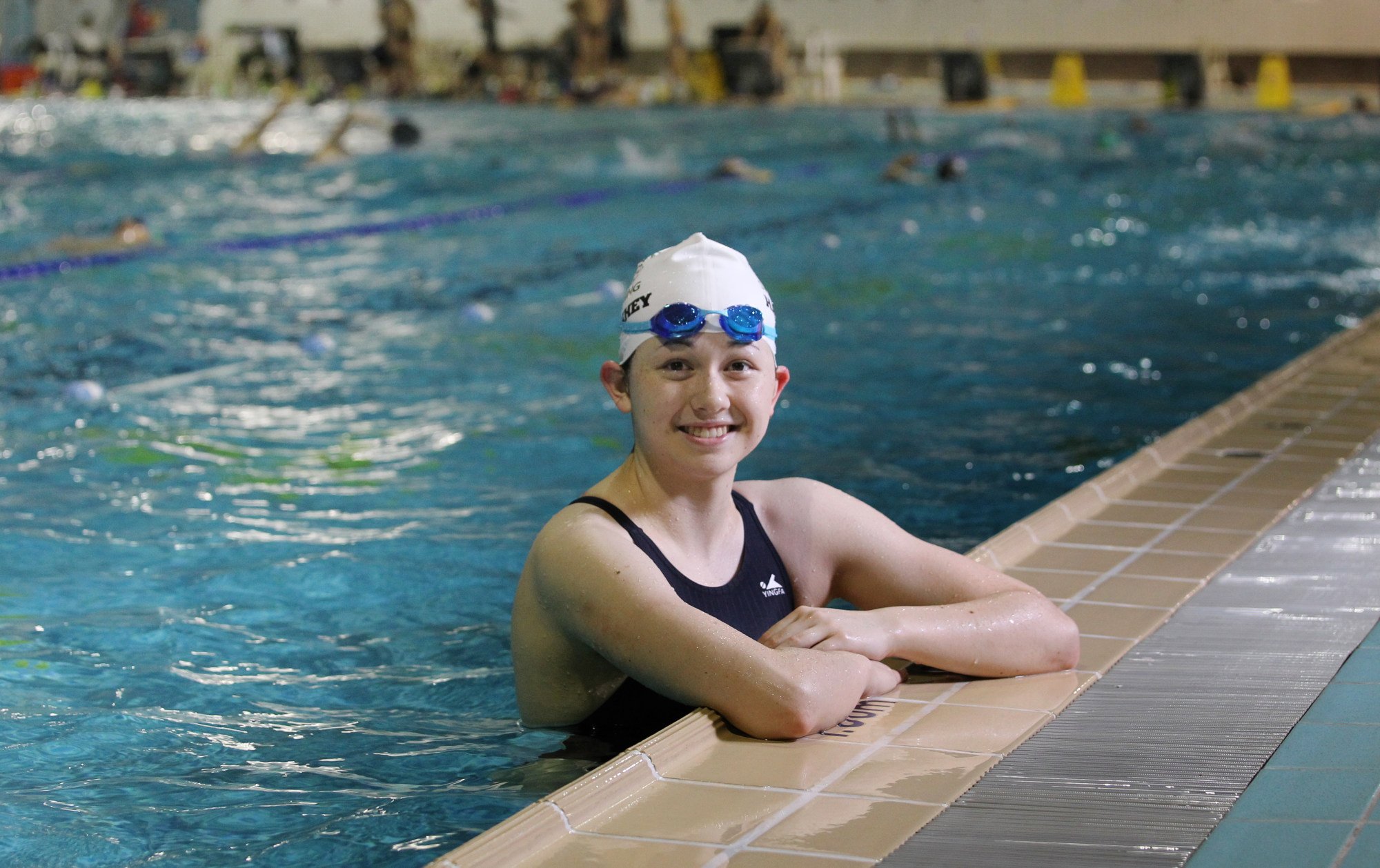
Leung remembers that “the head coach, even though he had only watched for a few minutes, told us, ‘Siobhán seems a bit different in comparison to other kids. She’ll be quite good in the future, and might even reach an international level.’”
But, she says, “At the time, Siobhán was not even 10 years old. As parents, seeing as she was still so young, we didn’t think too much about it.”
Still, when the opportunity arose, an 11-year-old Haughey was given permission to compete in international competitions in Australia with her older sister, Aisling, also a swimmer.
A few years later, Haughey won gold in the 100 metres freestyle at the 2013 Fina World Junior Swimming Championships, in Dubai.
“That was really special,” says Leung, “because that was her first time competing at a world championship, the first time I saw our city’s flag raised and heard the national anthem played.”
As you get older, your body doesn’t recover as quickly. I guess you go to college and somehow you age 10 years in a month.
Siobhán Haughey
Aside from swimming competitively, during her time at St Paul’s Primary Catholic School and St Paul’s Secondary School, Haughey also ran track and field and played rugby.
Outside sports, she dabbled in English debate and played piano, for the latter passing the ABRSM (Associated Board of the Royal Schools of Music) Grade 8 exam – a rite of passage for many Hong Kong students.
All the while, Haughey looked up to her sister, Aisling, two years her senior.
“We were really close when we were younger,” says Haughey. “We basically did everything together. We went to the same school, we had the same after-school activities, we swam together and played the piano together and all that.
“If you think I was the perfect child, she was even more so. She was really good in school, she’s very disciplined, very organised, and likes to read. She was a role model.”
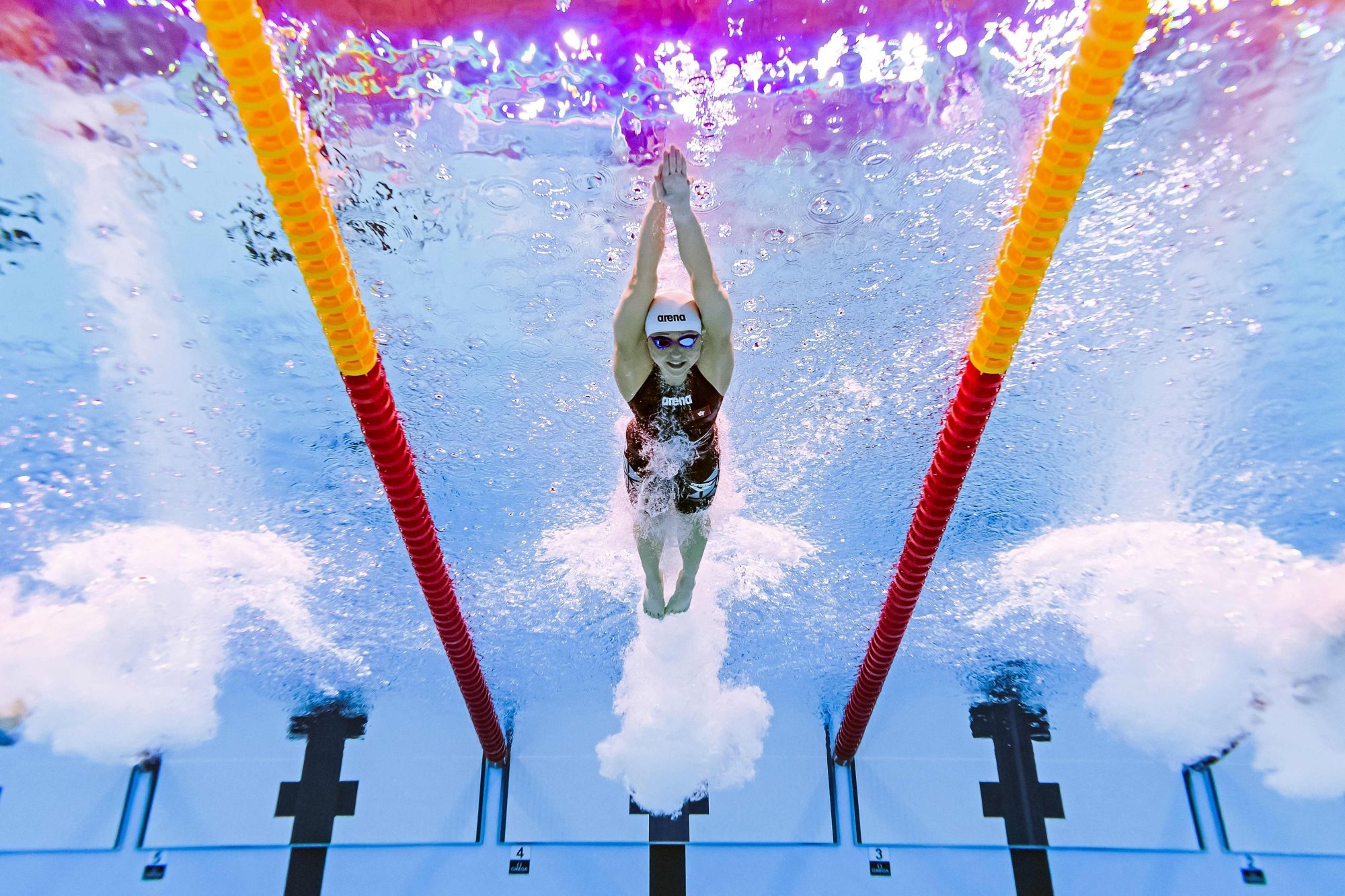
But there came a point when Haughey had to find her own path. That arrived with her decision on where to attend university.
While Aisling was adamant about going anywhere but the United States (she ended up studying in Dublin, Ireland), Haughey, won over by the US’ National Collegiate Athletic Association (NCAA) system, took the opposite route.
“I wanted to go somewhere where I could get a good education and also have a good swim team, and the US just seemed like a very good place because the NCAA system really supports people being a student athlete,” she says.
“I heard that’s where all the good swimmers go, to the US. So then I was like, ‘I want to be there, too.’”
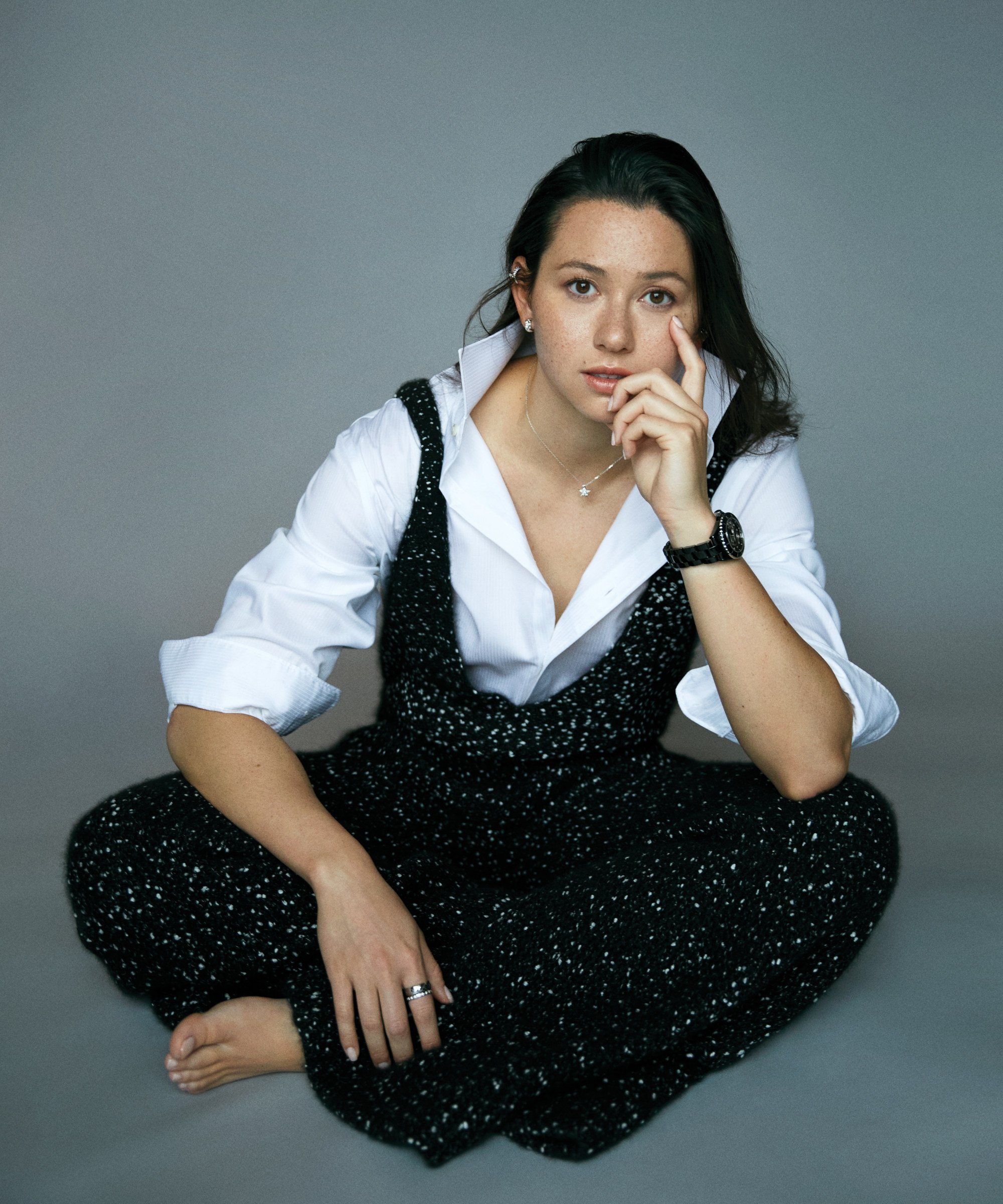
“They had a new coaching staff, so they were trying to rebuild the whole swim team there,” she says. “I felt like they really wanted to find potential swimmers to help grow the team, and they were putting a lot of care into the swimmers as well.”
Yet, when she arrived in the city of Ann Arbor in 2015, it was not all smooth sailing. The star swimmer struggled to adjust to the increase in training, which went from seven sessions a week to 10. On top of that, she had to go to the gym for additional fitness training.
“Your body just can’t keep up with it. You’re just breaking down every single day and you’re not even recovered, and the next morning you have to wake up and do it all over again,” she says. “That was one of the hardest adjustments to make – just getting used to being tired all the time.
“Also, as you get older, your body doesn’t recover as quickly. I guess you go to college and somehow you age 10 years in a month.”
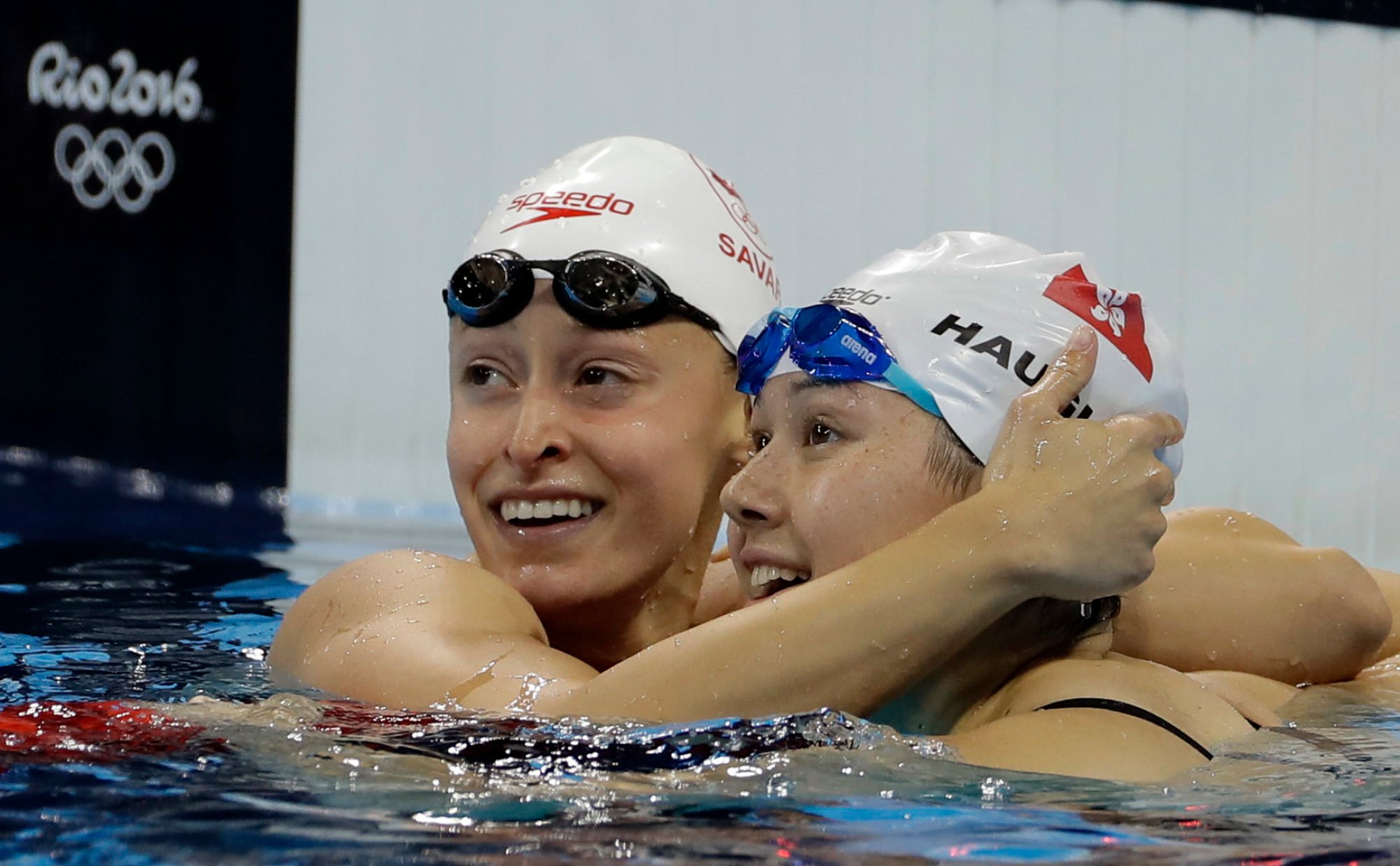
Even beyond the training, Haughey struggled to adjust. “The school part was easy,” she says. “Everything else was hard. As a very shy person, it’s hard to make new friends.
“There were quite a few moments where I thought of just going back home – ‘Maybe this is not right for me.’ That’s where all the crying to my mum came from.
“She said, ‘OK, but if you just come home now, will you ever achieve your goals?’”
Haughey pushed through and settled into Ann Arbor, where “once I got into a rhythm, got into a routine, things got easier and it all just fell into place”, she says.
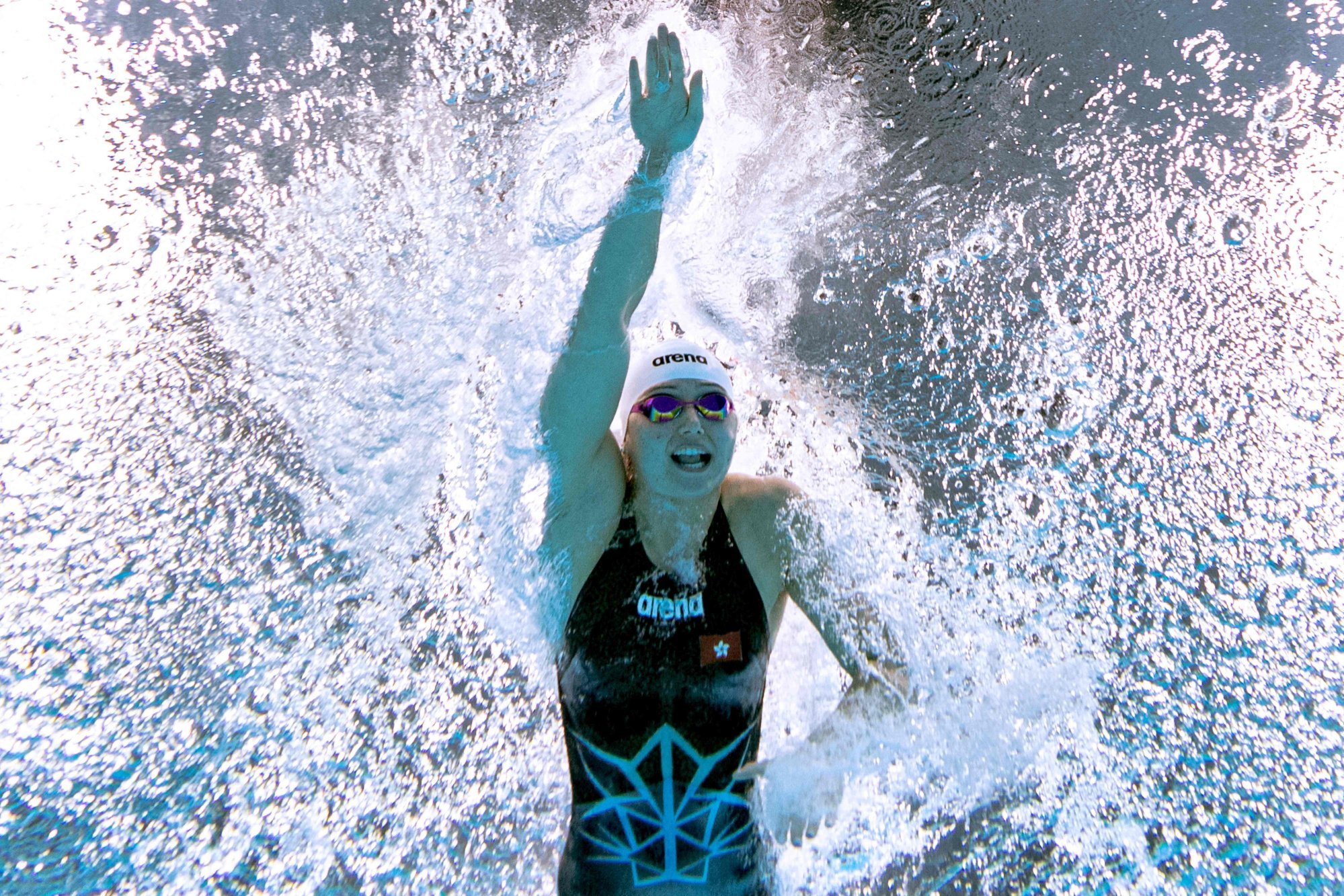
With this victory, she became the first Hong Kong swimmer to score a gold at the World Aquatics Championships – but that wasn’t all the hardware she won.
Earlier that week, Haughey had earned a bronze medal in the 100 metres breaststroke, and later that week, she took home a silver in the 100 metres freestyle.
Come this summer, all eyes in Hong Kong will be on Haughey, but she is adamant about maintaining perspective.
I just feel like I’m a regular person who’s swimming up and down in the pool. I’m not curing cancer. I’m not teaching kids how to read
Siobhán Haughey
“I get worried if I think about it, so I try not to,” she says. “I remind myself that my goal in swimming is not to satisfy those expectations. My goal is just to challenge myself and see how far I can go and see what I can do next.”
Her coach, Tom Rushton, agrees. The two began working together in 2020, when Haughey joined Energy Standard, the International Swimming League team led by Rushton.
“It’s difficult to say that we want to win or we want to win a medal, because the events that she swims are very competitive and there are so many amazing women who race against her,” says Rushton.
“She could swim her best times and not win a medal. In fact, that happened last summer [at the World Aquatics Championships] in Fukuoka, in the 200 metres freestyle. She swam essentially the same time that she did in the Olympics in Tokyo, and came fourth.
“What I always want for her is just to swim her best.”
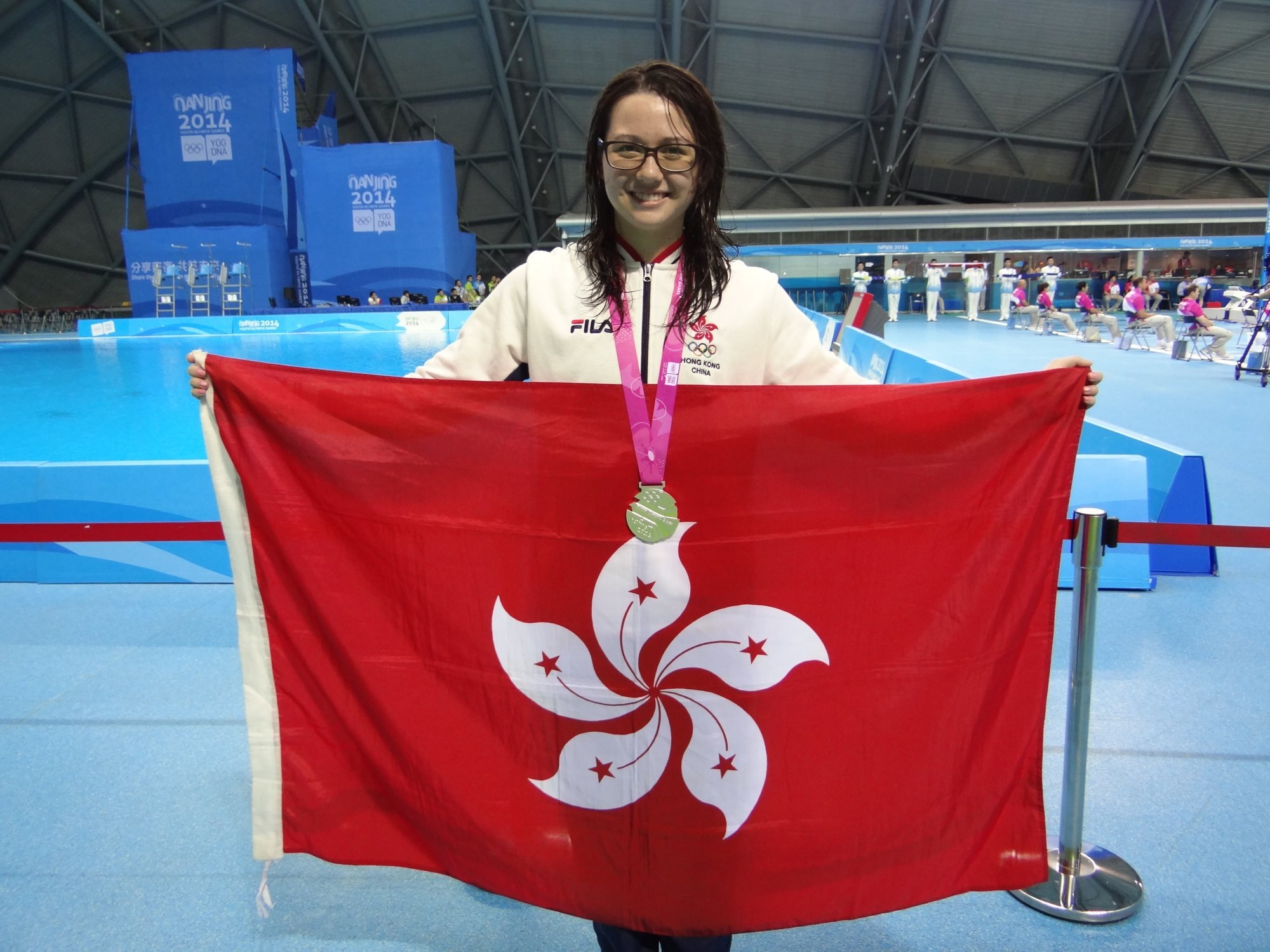
In Flagstaff, Haughey may moonlight as a non-celebrity, but 12,000km (7,460 miles) away in Hong Kong, much has changed since she complained about being forced into her first public swimming pool.
And yet, she says, “To me, I feel like I’m just like everyone else, and I’m not doing anything special. It’s just that my job happens to be reported on the news more often than other people.
“So in my mind, I just feel like I’m a regular person who’s swimming up and down in the pool. I’m not curing cancer. I’m not teaching kids how to read.
“It feels like a very selfish thing, but then I have people come up to me and say, ‘You’re doing a good job,’ or they write letters to me or send me messages – these small things that make me feel that I am making an impact on the world.”
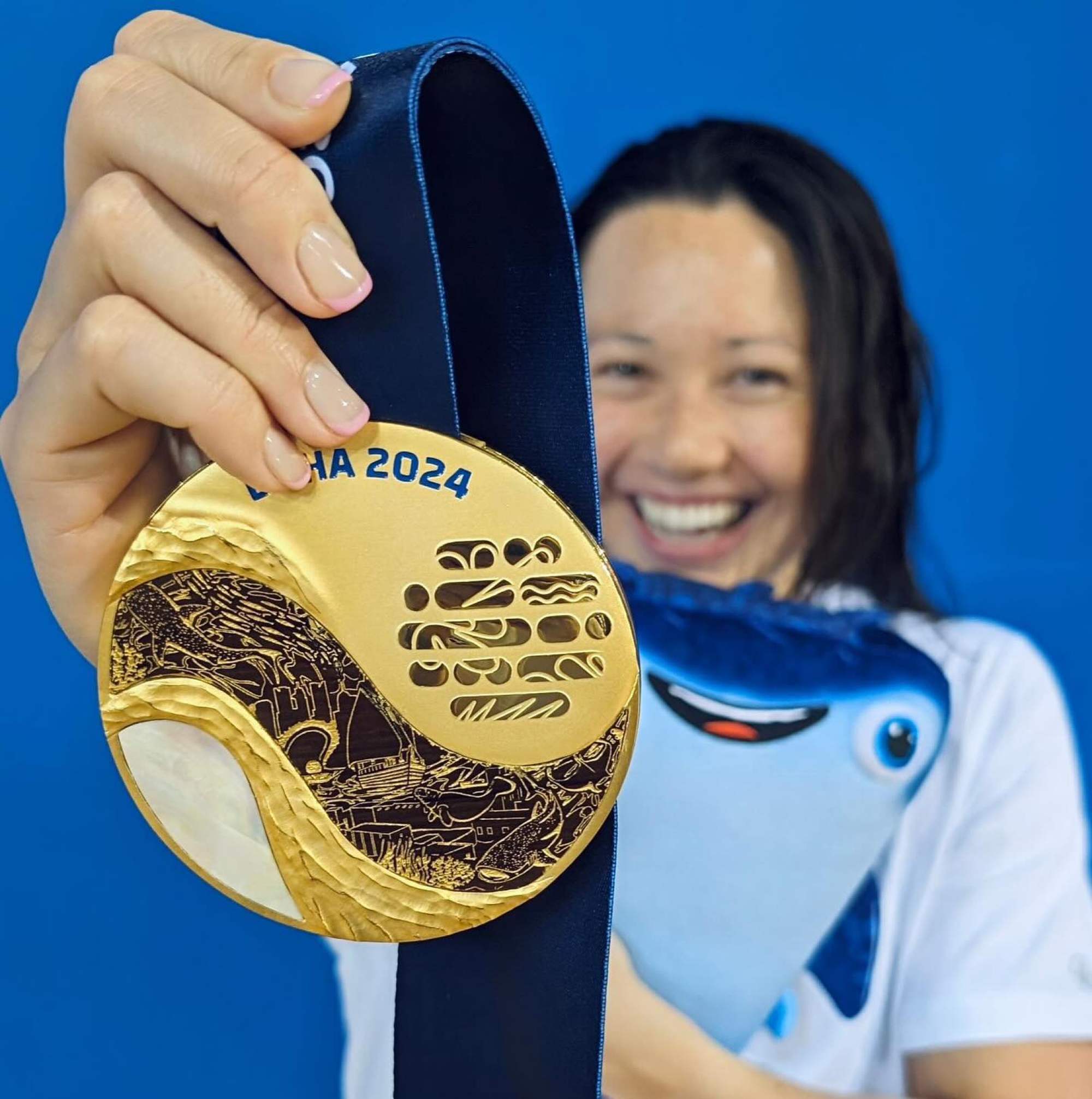
“I remember so distinctly, one of the things I asked her was, ‘What do you do in the morning when you wake up? Do you brush your teeth first thing? It was so stupid. But all these things she would answer with a smile on her face,” he says.
“I still ask her for advice on my stroke, and I think that says a lot about who Siobhán is. She’ll never get tired of how many questions you ask.”
Her team presence also pushes those around her to become better, says Lim, who is currently attending, and swimming for, Princeton University in the US.
He describes an instance where she swam 75 metres without taking a single breath – a feat that Lim tried, and failed to replicate. “She taught me what it means to be a professional, in any sense of the word – whether as a swimmer, or just how to carry yourself.”
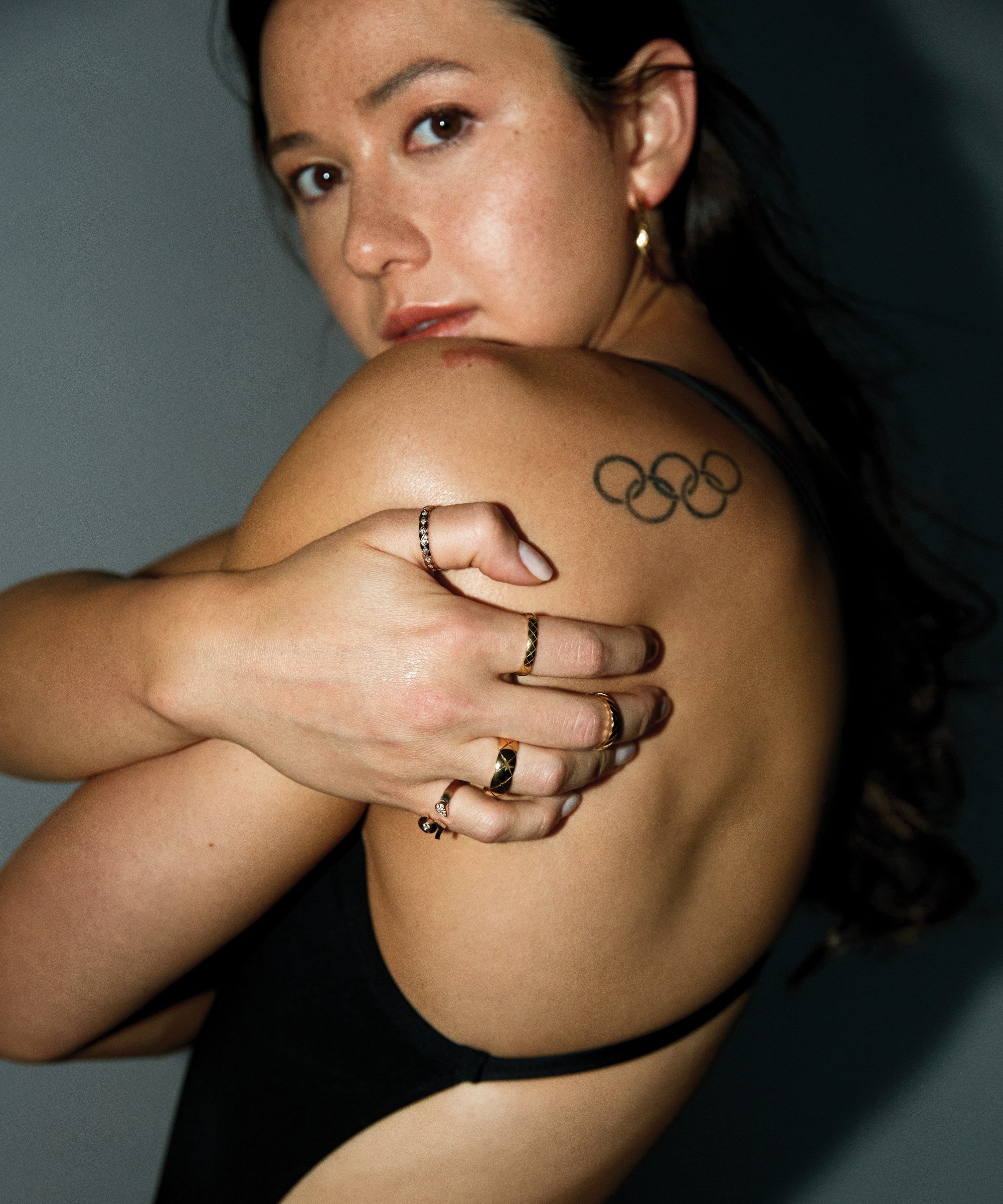
If time has changed anything about Haughey, it’s that she is now more confident and intentional in her actions.
Growing up in Hong Kong, she spent years going with the status quo – an upbringing that’s surely at least partly responsible for her polite, even-tempered demeanour – but over the years the swimmer has learned that she can deviate from, in her words, “the proper way”, and still succeed.
“In the past, I was very passive – whatever the instruction was, I would do that. Now, I’m still like that, but at the same time I have my own views as well.
“And if I feel like this is not exactly the direction I want it to go, or I feel like there’s a better way of doing it, then I will say it’s not right,” she says.
“To younger me, that’s probably being rebellious,” but now “I’m more comfortable, more confident in my opinion and in my worth. I have more knowledge and a voice I can use.”
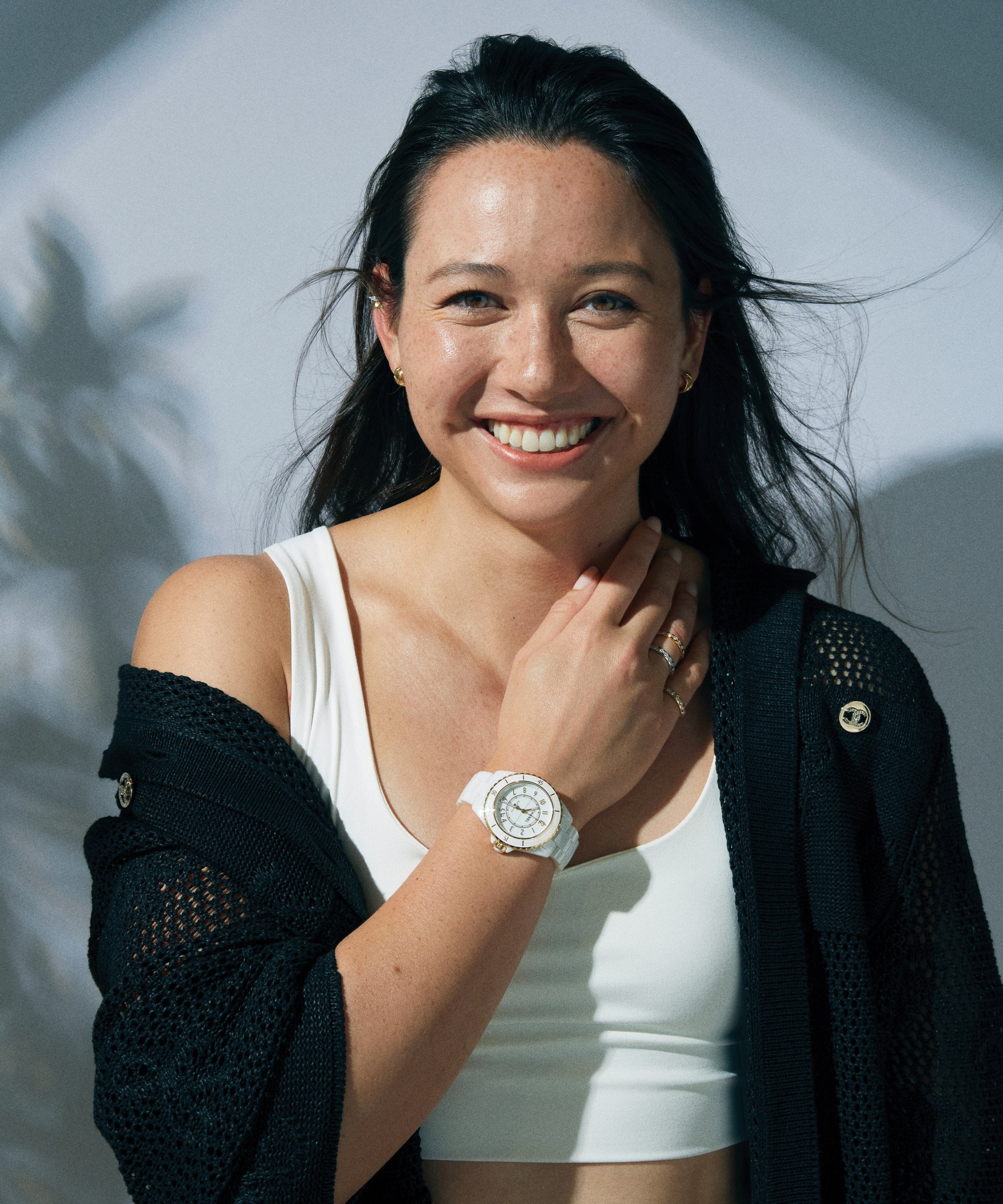
“It’s so natural for me to represent Hong Kong because I was born and raised here. I went to a local school, I speak Cantonese.
“Hong Kong is where I learned to swim.”

